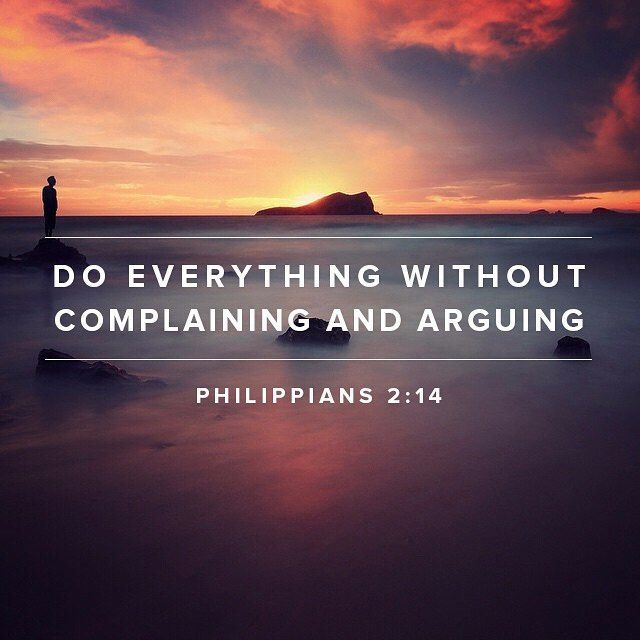THE SEED
”Do all things without complaining and disputing,“ Philippians 2:14 NKJV
Murmuring is evil in the ears of God. Do not murmur against God. God is not happy with such behaviour. Despite His Miracles in the life of the Israelites, they still complained. Murmuring is a sin to God because you are making a complaint in a bad manner. As a child of God, we need to desist from this act as this provokes God and God’s anger can result in irreversible judgment when His people complain. As they did in the book of Numbers 11. “And the Lord heard it, and His anger was kindled, and the fire of the Lord burnt among them, and consumed them that were in the uttermost parts of the camp.” Our God is a God of possibilities, he can do all things. Instead of murmuring, let us kneel before Him and pray, sing beautiful and lovely songs to Him to declare our love and trust for Him, He will surely hear us from His throne and answer us. Another thing about murmuring is that it shows an act of being ungrateful and this is not Christlike. Anytime you are tempted to murmur or complain please try to remember every good thing the Lord has done for you, how He had come through for you when no man was ready to lift even a finger to render assistance for you, also search the scriptures and be happy and in no time you will receive the goodness and Mercy of God.
BIBLE READINGS: Matthew 20:11-15
PRAYER: Father, forgive me for complaining in the face of difficulties and challenges, I receive the grace to do all things without murmuring and complaints in Jesus Mighty Name. Amen.
MÁṢE KÚN
IRUGBIN NAA
“Ẹ máa ṣé ohùn gbogbo li àìsí ìkùnsínú atí ìjiyàn” Fílípì 2:14
Ìkùnsínú jẹ́ ohùn búburú ní etí Ọlọ́run. Máṣe kùn sí Ọlọrun. Inú Ọlọ́run kò dùn sí irú ìwà bẹ́ẹ̀. Láìka àwọn iṣẹ́ ìyanu Rẹ̀ sí nínú ìgbésí ayé àwọn ọmọ Ísírẹ́lì, wọ́n ṣé iráhùn. Ìkùnsínú jẹ́ ẹ̀ṣẹ̀ sí Ọlọ́run nítorí pé o ráhùn lọ́nà búburú. Gẹ́gẹ́ bí ọmọ Ọlọ́run, a ní láti jáwọ́ nínú ìṣe yìí níwọ̀n bí èyí ti ńru Ọlọ́run sókè, tí ìbínú Ọlọ́run sì lè yọrí sí àwọn ìdájọ́ tí kò lè yí padà nígbà tí àwọn ènìyàn Rẹ̀ bá ńráhùn. Gẹgẹ bi wọn ti ṣe ninu iwe Númérì ori kọkànlá. O dun Oluwa, a si kọ ọ pe “Oluwa si gbọ, ìbínú Rẹ̀ si ru, iná Oluwa si jó ni àárín wọn, o si run awọn ti o wà ni ipẹkun ibudó.” Ọlọ́run wa jẹ́ Ọlọ́run tó lè ṣe ohun gbogbo. Dípò kí a kùn, ẹ jẹ́ kí a kúnlẹ̀ níwájú rẹ̀, kí a sì gbàdúrà sí i, kí a kọrin dídun sí i láti kéde ìfẹ́ àti ìgbẹ́kẹ̀lé wa fún un. Dájúdájú yóò gbọ́ tiwa láti orí ìtẹ́ rẹ̀ yóò sì dá wa lóhùn. Ohun mìíràn nípa kíkùn ni pé, ènìyàn fi ìwà àìmoore hàn, èyí ki i ṣe ìwà bí ti Kristi. Nigbakugba ti o ba ni imọ lára lati kùn, tabi ṣe awawi, jọwọ gbiyanju lati ranti gbogbo ohun rere ti Oluwa ṣe fun ọ, bawo ni O ṣe ri fun ọ nigbati ko si ẹnikan ti o ṣetan lati gbe ika kan sókè lati ṣe iranlọwọ fun ọ, tun wa inu iwe-mimọ ki o si ni idunnu, lai pẹ o o ri ire ati aanu Ọlọ́run gba.
BIBELI KIKA: Matteu 20 11-15
ADURA: Baba dariji mi fun ìráhùn nínú awọn iṣoro ati awọn ìlàkọjá, Mo gba Oore-ọfẹ lati ṣe ohun gbogbo laisi kíkún ati àwáwí ni orukọ nla Jesu. Amin
